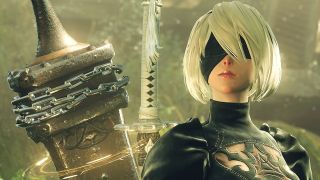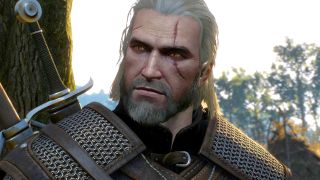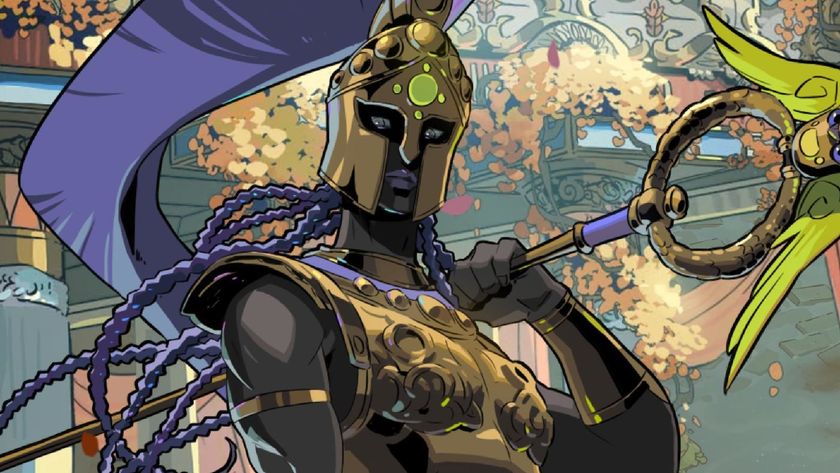Warm humanity, harsh morality, and accidental puke-burps: Fable 2's Albion remains a truly lovable RPG world, 9 years later
Lionhead created something very special in Fable 2. A weird, affectionate, terrifying, reactive world that shaped us as much as we shaped it.
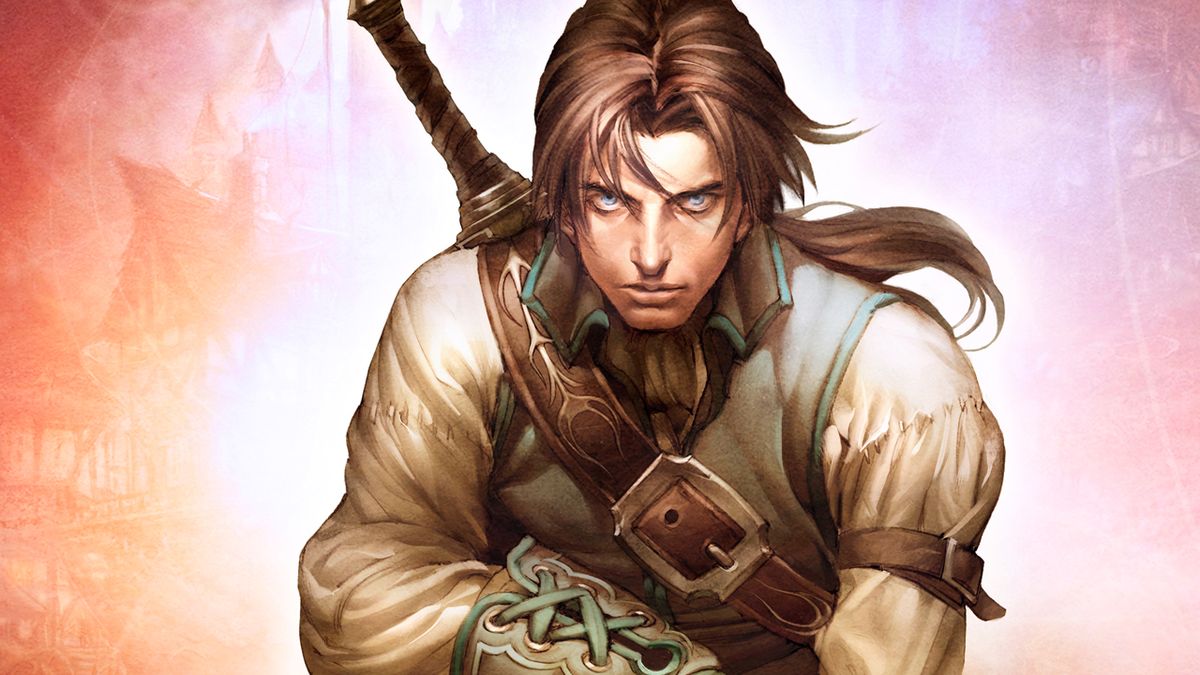
Late afternoon on a balmy day in Oakfield, I fell in love. No, not with another person – though I had grown rather attached to my virtual wife and child – but with Albion itself. Something about that lowhanging sun, casting the village’s quaint cottages in a sumptuous autumnal glow, together with Russell Shaw’s wistful, emotive score, convinced me that this rustic idyll was a place I could really call home.
Most videogame environments are places to delve into, pick clean and leave behind. Occasionally we’re invited to rest, to set up a base of operations. But most games view houses as Le Corbusier famously did: as machines for living in, and nothing more. This, however, felt like a place to settle down; somewhere to put your feet up at the end of a hard day’s adventuring.
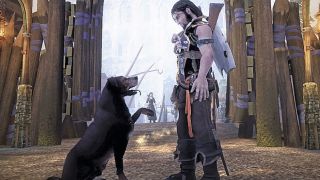
Albion – more specifically, Fable 2’s Albion – is almost certainly Lionhead Studios’ greatest achievement. The original Fable established a pleasantly leafy, pastoral setting, but it was comparatively flat and benign. Fable 2’s vision of an industrialised Albion, meanwhile, gave us the grime but not the greenery; a world reluctantly caught up in the middle of a revolution without being quite ready for it. The in-game history books suggest a world in almost constant tumult, but in Fable 2 we find it enjoying a rare spell of peace, the calm before a gathering storm.
Not everything there is entirely green and pleasant, of course. There are plenty of Hobbes, Hollow Men and Balverines, and also moments of genuine tragedy – the haunting, mistshrouded Wraithmarsh induces shivers rooted in sadness – but in the main there’s an undeniably appealingly upbeat, convivial atmosphere. Unless you’re behaving very badly, there’s usually someone happy to see you. And if not, well, at least they’re visibly and audibly aware of your presence.
Much has been written about the absence of most orthodox methods of punishment in Fable 2, in particular the removal of death for player characters. Yet as convenient as it is not to return to distant checkpoints, nor to witness a boss you’d almost vanquished re-emerge with a dishearteningly full health bar, this is perhaps the least interesting way Lionhead chooses to empower you. Albion is a reactive world, one that yields to your presence in ways small and large – environments change according to the choices you make, and people change, too.
Everyone's hero, everyone's knobhead
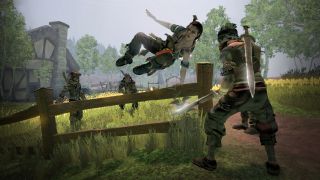
In most games, you’ll recognise the impact of significant decisions, but in Fable 2 this happens on a moment-to-moment basis, with the slightest shifts in your physique and stature affecting how the populace responds to you. Fate’s designs may have cast you as the Chosen One, but it’s a chastening moment when your behaviour on the road causes townsfolk to greet you with a cheery “Hello, Knobhead!”
Without its NPCs, Albion would still be an unusually rich and attractive world to save. With them, it’s one to savour. As with so many other RPGs, they’re quest-givers and allies, employers and store owners. They sell and craft weapons and armour, give you haircuts and tattoos. They can be wives and husbands, which is less common, if hardly unique. Many are there to simply add colour; again, that’s nothing new. What’s different is that each and every one is there for your entertainment, and you for theirs.
Sign up to the 12DOVE Newsletter
Weekly digests, tales from the communities you love, and more
Your interactions with them are rudimentary yet meaningful, even at their silliest. You can dance and flirt with them, threaten them, point and laugh at them, or invite them to kiss your arse. Earn sufficient renown and they might fawn over you, offering you gifts or proposing marriage – or scuttle off in fear as you approach. The point being, there’s a tangible response to everything you do, no matter how minor. And, as such, their role in your story feels that bit more significant, your affection for them grows, and Albion becomes more loveable as a result.
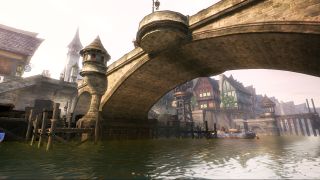
Then again, Albion had to be loveable to support Lionhead’s riskier choices. Many of these were attributed exclusively to founder and lead designer Peter Molyneux, which seems rather unfair – not only to the studio’s other creatives, but the poor coders who would find themselves suddenly tasked with trying to implement Molyneux’s more fanciful conceits, often revealed on a whim during interviews and at industry events. His habit of making outlandish promises, of course, had most infamously manifested in the idea of an acorn flourishing into a mighty oak over the course of the original Fable. Here, this was affectionately parodied – though some curmudgeons, still annoyed that Molyneux had not stayed true to his word, considered it no laughing matter.
Whoever was responsible, the audaciousness of some of these ideas can only be applauded. Divisive though it may have been, the golden breadcrumb trail that guides you towards your destination is not merely a handholding device for those incapable of reading a map. Rather, it’s an invitation to actively wander offroad, to follow your canine companion towards buried treasure, loot chests and other optional asides, or to ignore its barks and discover secrets by following your own nose. And once your curiosity has been sated, there’s none of the frustration that comes with being lost: just step back on that snaking trail and you’ll find yourself back in familiar territory in no time.
Its streamlined combat also had plenty of critics. And yet by attributing all melee, ranged and magic attacks to a button each, Fable 2 allowed you to combine the three effortlessly. With the fear of death all but eradicated, what could have been a desperate struggle for survival becomes a flashy showcase of strength, skill and will. With such a range of abilities at the tips of your fingers, Lionhead ensures you’re always facing unreasonable odds.
Cruel and unusual punishment
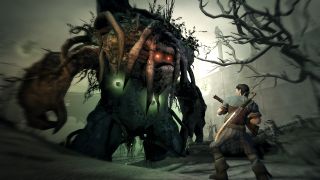
What it may lack in depth, it makes up for in spectacle, as you dance in and out of danger, pulling off grandstanding flourishes. You might raise the dead as a distraction before conjuring a shockwave that stuns all opponents within a wide radius. You’ll charge attacks that knock enemies to the floor, upon which your dog will rush in to savage them. At times, its limitations are laid bare – the series of arena battles at The Crucible gets repetitive quickly – though you could argue that’s partly intentional. Either way, you’ll gain more experience for efficient kills, a smart way of incentivising mastery as opposed to penalising less competent players.
It takes bold risks with the story, too, most notably in the second-act sequence where your hero is held captive for a decade within The Spire, a towering conduit for all Albion’s magic. As players, we’re accustomed to moral conundrums that affect the narrative of a game, but these rarely carry any great significance beyond that. Here, Lionhead dares to test the player’s virtue by ensuring good deeds have a palpable and lasting impact. A guard hits you and invites you to thank him; a defiant middle-finger salute to his request will trigger an electric shock that not only sees you lose substantial experience points but scars your hero.
Soon after, you’ll be asked to let your fellow prisoners starve, and then to kill your only ally on the inside – refuse, and you’ll be zapped again and permanently marked. The experience can easily be regained later, but the disfigurements feel more invasive. For players who’d maintained a flawless complexion by surviving multiple battles without falling, this may have been too high a price to pay. I, on the other hand, wore my scars as a badge of honour: an immutable reminder of my desire to do good in this judgemental world.
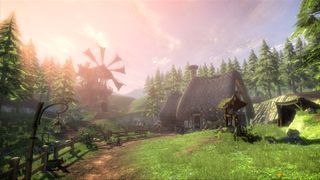
In recent years, the notion of shaping a world with your character’s words and actions has become commonplace, but it’s still rare to find examples where the reverse is also true. Albion, however, changes you – it can leave you bloated or gaunt, blemished or glowing, reviled or deified. Your fate and that of Albion is enmeshed, such that it’s hard to think of another game where you feel such a profound sense of connection with the world. Perhaps, after all, you are Albion’s acorn, your roots embedded deep beneath its surface just as your heroic actions see your legend grow and grow.
Not that everyone saw the appeal. Fable 2 has a strong and coherent vision of what a contemporary RPG can be, but as fully realised as Albion is, you can see the joins where its disparate pieces have been pushed together. It isn’t a truly open world in that it is split into manageable chunks, usually with no more than one or two routes to any given destination. Arriving around the same time as the sprawl of Fallout 3’s Capital Wasteland, to some Fable 2 felt quaint and restrictive, while for those seeking a challenge it was a little too eager to please. Sluggish menus, the odd glitch, and loading times that made a mockery of the idea of fast travel were sufficient for some to write it off as another Lionhead project that had shot for the moon and fallen short.
Yet as time goes by, Fable 2 feels ever more like a gaming anomaly – a whimsical, escapist antidote to the grim pseudorealism of many modern adventure games. A hero, it suggests, shouldn’t simply stoically overcome the trials fate puts in their path, but should be afforded the opportunity to kick back, get drunk, punt chickens up the arse, and burp so long and loud that they end up voiding their stomach on Bowerstone’s cobbles. In light of Microsoft’s decision to shut down Lionhead, it’s looking depressingly likely that we’ll never get to see Albion again, in any era. But a small corner of that world lives on in my heart: that sleepy, sun-kissed haven where I chopped wood, kept bar, and flipped the bird at my outraged neighbours. The place I fell in love.
This article originally appeared in Edge magazine. For more great coverage, you can subscribe here.

Chris is Edge's deputy editor, having previously spent a decade as a freelance critic. With more than 15 years' experience in print and online journalism, he has contributed features, interviews, reviews and more to the likes of PC Gamer, GamesRadar and The Guardian. He is Total Film’s resident game critic, and has a keen interest in cinema. Three (relatively) recent favourites: Hyper Light Drifter, Tetris Effect, Return Of The Obra Dinn.
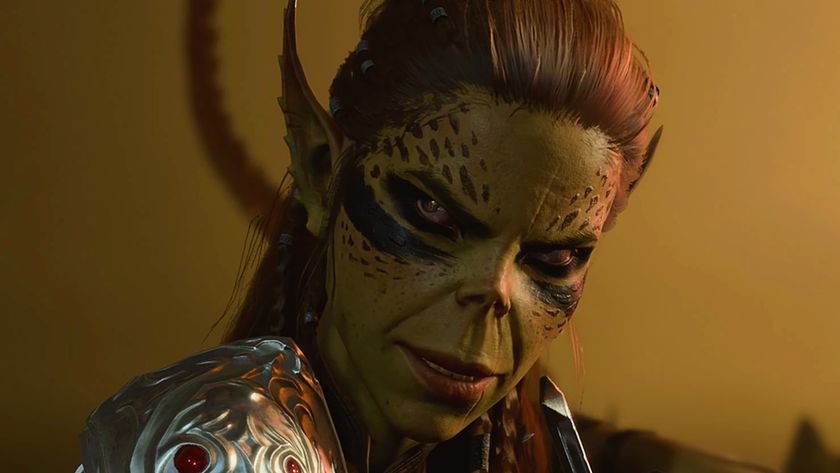
Baldur's Gate 3 Lae'zel actor was "paranoid" about making the githyanki girlfriend’s voice "lower and lower" through Act 3 until she realized "it really works with her character development"
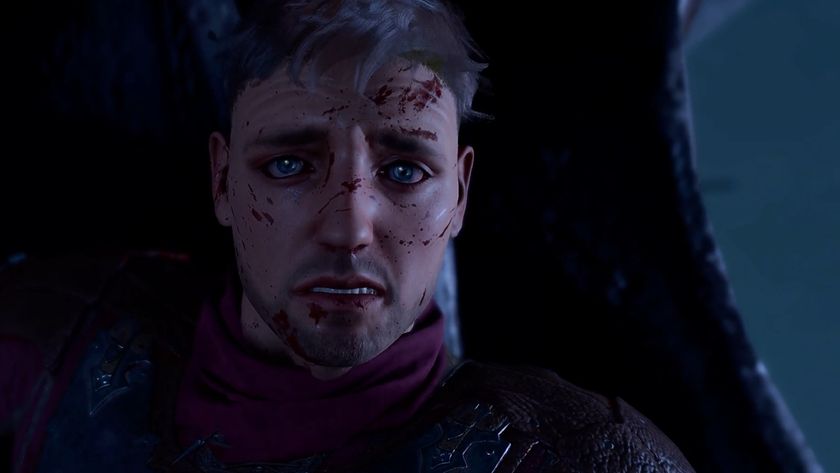
RPGs collide as Kingdom Come: Deliverance 2 player commissions Baldur's Gate 3 mod to play as Henry: "He’s just a Christian boy from medieval Bohemia and now there’s demons and fireballs"
Most Popular






